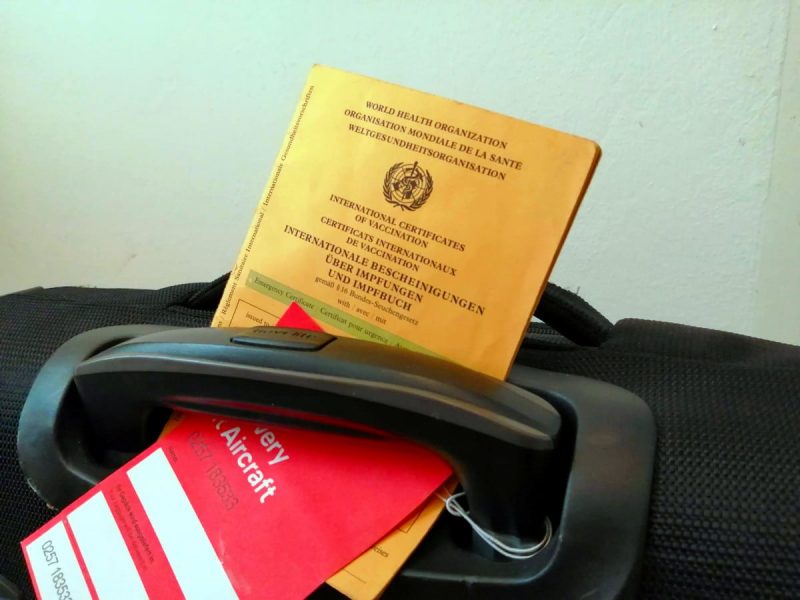A few days ago it became known that Austria is increasing the validity of the status “fully vaccinated against Covid-19” to 12 months. At the same time, you can already register for a booster vaccination, which is carried out “off label”.
Austria's approach is problematic because it simply disregards warnings from manufacturers as well as scientific findings. The problem is that the mRNA vaccines do not deliver what was promised. The "shelf life" of the antibodies is much lower than originally forecast by the producers.
This is exactly a big problem, because, for example, with the vaccine from Biontech / Pfizer, the number of antibodies drops sharply within six months of the second vaccination. No wonder: Pfizer recommends that after six months a booster vaccination, which some politicians also refer to as a “booster”, should be carried out.
Antibody levels can be determined in the laboratory
How strong the degradation of the antibodies can be is shown by antibody tests carried out in an Austrian laboratory provided by a person vaccinated with Biontech / Pfizer. The first test was carried out on May 20, 2021, exactly 18 days after the second vaccination, and showed 1381.0 BAU / ml. So at that point the level was very high.

The same person had another "antibody check" carried out in the same laboratory on September 10, 2021. The level has dropped to 300 BAU / ml. This means that you are still in the "good range", but the decline is quite strong. Assuming that the reduction takes place linearly, it could become “scarce” within the next two months.

A doctor, who was consulted for advice in this context, pointed out that the degradation of the antibodies does not have to take place linearly and that there are other criteria that can also play a role. The neutralizing antibodies alone wouldn't be everything, because the body's immune response is much more complex. In his opinion, the falling titers are not the same for all people.
However, it seems problematic that Austria inflates the validity of the corona vaccinations (1x Johnson & Johnson or 2x other vaccines) to 12 months and does so with full knowledge that the neutralizing antibodies - at least with the mRNA vaccines - strongly degrade within six months . This thesis has not been scientifically proven: Theoretically, it is possible that no antibodies are present at all within a year, but the person is exempt from tests and quarantine due to the current legal situation.
Israel requires the third vaccination for entry after six months
In Israel this problem has not only been recognized, but has been struggling with it within the country for some time. You started early with booster vaccinations and at the same time you limit the validity of the “full vaccination” to six months upon entry. Specifically, this means that Israel explicitly stipulates that you need a third vaccination (or a second vaccination at Johnson & Johnson) after six months. Otherwise you are not allowed to enter the country.
Whether you want to be vaccinated or not is not even discussed in this comment. Everyone should decide for themselves. People who have decided to be vaccinated should keep an eye on their antibodies and at the same time pay attention to changes in entry regulations in various countries. The example of Israel shows that there are tendencies that in the foreseeable future three vaccinations (or two vaccinations at Johnson & Johnson) could become a basic requirement for entry.
Vaccinated travelers should keep an eye on developments
Austria is still behaving completely differently with the inflation for 12 months, but winter is approaching and the events since the beginning of the corona pandemic have shown that nothing is set in stone and that politics can make extremely short-term changes. Prescribing a third vaccination after six months would be a means in winter to "curb" travel.
At least one indication of this are the implementation regulations for “off label use”, which were issued by the Austrian Ministry of Health. Only risk groups and elderly people in nursing homes or over 80 years of age have official access to the third vaccination and it is recommended to have this carried out between six and nine months after the second. All others should be re-vaccinated between nine and twelve months. In view of the severe degradation of antibodies, this can be problematic. In this respect, travelers should keep an eye on the developments and findings of science in connection with Covid-19 vaccinations and the entry requirements for vaccinated people. It cannot be ruled out that there could be a tightening over the winter in various countries and that “the third” could be prescribed as a basic requirement. You shouldn't feel confident that with two vaccinations or one from Johnson & Johnson you will have peace and quiet from the Corona issue in the long run.





 trail (for them it's free to use)
trail (for them it's free to use)